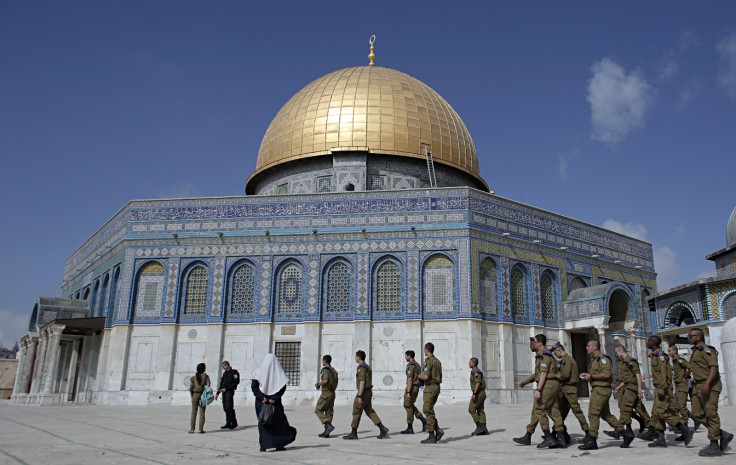Jerusalem: Palestinians and Israeli soldiers clash as ultra-nationalist Uri Ariel visits al-Aqsa mosque

Islam's third-holiest site became a battlefield Sunday as Israeli police fought with stone-throwing Palestinians outside the al-Aqsa mosque in Jerusalem.
Israeli soldiers entered the compound in the centre of Jerusalem's old city, firing stun grenades as masked Palestinians threw rocks and fireworks.
Palestinian media claimed that the violence broke out after ultra-nationalist Jewish worshippers attempted to visit the site to mark a holiday that commemorates the destruction of the first and second Jewish temples on the site of al-Aqsa.
It is believed that Israeli cabinet minister Uri Ariel, Israel's minister for agriculture and a member of Naftali Bennett's ultra-right Jewish Home party, eventually toured the site to mark Tisha B'Av, a Jewish fast day.
Site of conflict
The site is sacred to both faiths Jews and Muslims, but the former have been banned from praying at the site since the 1967 war, when Israel took control of Jerusalem but left the mosque to be administered by Jordan.
Members of the Islamic Waqf – Jordanian security forces that protect and patrol the site – watch the lips of Jews that visit the compound to ensure they are not silently reciting prayers. In recent years, Israel has imposed strict restrictions on access to Muslim worshippers, often banning men between the ages of 16-60 from entering the compound in a bid to prevent violence.
In recent years, Jewish lobby groups have pressured the government of Benjamin Netanyahu to push for freedom of worship for Jews at the site. But it remains a controversial issue for Arabs and efforts to pray at the site by Israeli ultra-nationalists often end in violence.
Muslims believe the Prophet Mohammed ascended to heaven from a rock underneath the iconic Dome of the Rock, which was built in 700AD. In the earliest days of Islam, Muslims would pray towards al-Aqsa before shifting the direction of prayer towards Mecca.
Home of two religions
Jews believe was the site of the location of the first and second Jewish Temples, destroyed in 500BC and 70AD respectively. The Western Wall, which is below the al-Aqsa compound today, is a popular site of worship for Jews and believed to be the last remaining part of the temple.
While Israeli forces often patrol the compound, they rarely enter the mosque itself. The last time the Israeli Defence Forces (IDF) did so Jordan recalled its ambassador in protest.
The site has been central to the wider Israel-Palestine conflict, with a visit to the site by then-president Ariel Sharon in 2000 helping to spark the Second Initifada.
© Copyright IBTimes 2024. All rights reserved.







